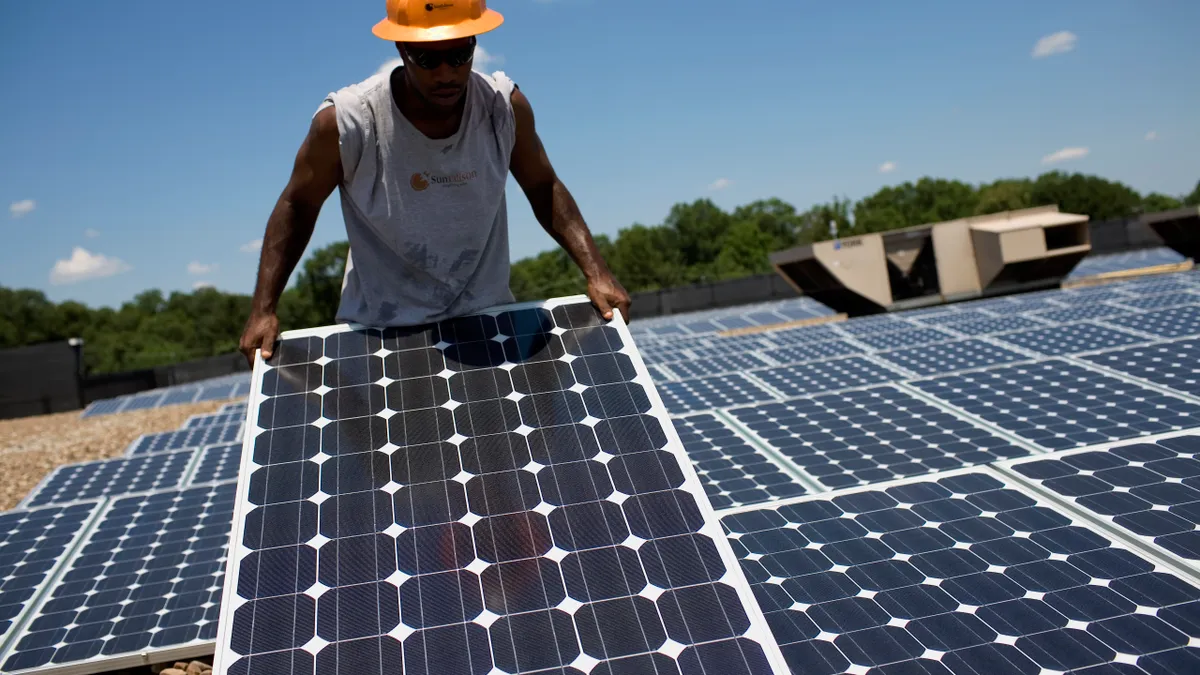Dive Brief:
- The Maine Public Utilities Commission this week approved revisions to the state's net metering policies for rooftop solar customers, grandfathering an existing customer's rate for 15 years but slowly reducing new customer rates each year.
- The decision aimed for middle ground but appears to have little support. Solar advocates say the decision is short-sighted, while Maine Gov. Paul LePage said the move did not cut net metering rates enough.
- The issue may not be final, however. The Bangor Daily News reports the state legislature is considering reviving retail rates through a bill being sponsored by Rep. Seth Berry (D-Bowdoinham.)
Dive Insight:
Maine's nascent solar market drew scrutiny after LePage vetoed a broadly supported bill that would have replaced net metering with a market-based incentive program. While some solar companies withheld their support, other local installers and utilities were on board.
LePage then punted the decision to the PUC, which proposed to phase out solar credits last year over a 15-year stretch, with a 10-year grandfathering phase. That decision was largely approved intact this week.
While the Maine PUC approved new solar rules this week, it's unclear if they will ultimately be rolled back. Lawmakers are considering a measure to permanently enshrine retail net metering, while Gov. LePage has pushed for greater cuts.
The new rule grandfathers existing customers for a decade and a half, but for new entrants, "it locks in the phase down level, at the year in which they enter, for fifteen years," Commission Chairman Mark Vannoy said in a statement. The decision also "maintains incentive margins consistent with the declining costs of solar technology," he said.
As new customers sign up over the next 10 years, the PUC explained that netting of the transmission and distribution portion of the bill will be "gradually decreased to reflect reductions in the costs of small renewable generation technology." In the first year, customers will receive the full value of the supply portion, and 90% of the T&D portion for the next 15 years.
LePage issued a statement saying the decision "continues to shift the burden away from those who choose to install and have the resources to afford roof-top solar installation."
On the other side, Natural Resources Council of Maine Clean Energy Director Dylan Voorhees said the decision was “a roll-back of the one thing that is sustaining some amount of a solar market in the state.”














